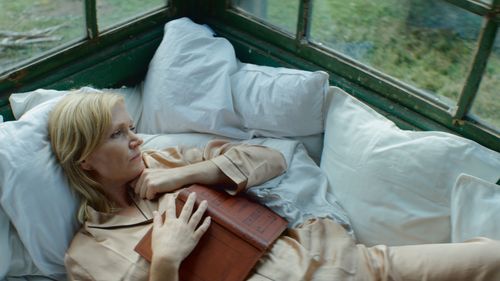The Spring at the Berlinale Co-Production Market
Ivan Ostrochovský, the producer and screenwriter of 107 Mothers (2021) – Peter Kerekes’ film situated at a Ukrainian women’s prison that won awards at Venice, Chicago, Les Arcs, and Cairo – is working on another female story. Together with his co-screenwriter Marek Leščák, they placed The Spring into the 1980s socialist Czechoslovakia and focused on sterilisations of Roma women and operation of abortion committees. The film will be presented at the Berlinale Co-Production Market.

“Abortion committees may be the saddest example of the communist regime invading the privacy of women in Czechoslovakia,” Ostrochovský, who is directing the film, said to Film.sk. The Spring has already received support from the Slovak Audiovisual Fund and the Czech Film Fund. “The ongoing pandemic has shown us how fragile our rights and values are, and how they contradict themselves,” Ostrochovský remarked in his notes for the Slovak Audiovisual Fund. The fact that it enabled the state to interfere in our privacy scared Ostrochovský more than the pandemic itself. In The Spring, he wants to shine a light on an era when laws and regulations controlled our most private areas. At the same time, the film aims to reflect that many recall this time period with a romantic sentiment.
As is usually the case, establishment of the abortion committees might have been motivated by a good intention. “The committees were established because the state wanted to reduce the large number of abortions. The committee was supposed to find the reasons why women decided for abortion, and to help them,” we learn from the project’s notes. However, the number of abortions only increased. Women had to be brought to account and answer the commission’s most intimate inquiries. According to Ostrochovský, the noble intention degenerated into the commissions as a repugnant controlling tool of the state that delegated its power to the district apparatchiks who, oftentimes, personally knew the women that had to stand before them. “Tens of thousands of women had to face these committees. Until this day, no one wants to talk about it,” the notes further read. Eastern European countries that are able to identify with the film’s topic are its potential co-producers. “The story wants to depict the prejudice against any form of otherness, which is deeply rooted in Slovakia.”
Ivan Ostrochovský has already introduced himself in Berlin – in 2014, as co-director of the documentary comedy Velvet Terrorists (2013) that won the Tagesspiegel Readers' Jury Award there. The Berlinale also presented his films Koza (2015) and Servants (2020).
The Berlinale Co-Production Market, where he will present his novelty film The Spring, has been taking place since 2004. Out of all the projects that have searched for supportive co-production partners there, over 330 films have made it to the finish line, meaning to the viewer. Many of those premiered at big-name film festivals and won awards. One of the most recent examples would be Bad Luck Banging or Loony Porn (2021) by Romanian director Radu Jude. The film won the Berlinale’s Golden Bear last year. Quo vadis, Aida? (2020) by Bosnian director Jasmila Žbanić and Flee (2021), the awarded animated documentary by Danish director Jonas Poher Rasmussen, also participated in the past editions of the Berlinale Co-Production Market. Regarding Slovak films, Mira Fornay’s My Dog Killer (2013) also participated and searched for partners there, in 2010. Three years later, the film won the main category of the Rotterdam film festival and received the Tiger Award.
Text: Matúš Kvasnička
Source: Film.sk Berlinale Edition 2022
published: 20.01.2022
updated: 27.01.2022



